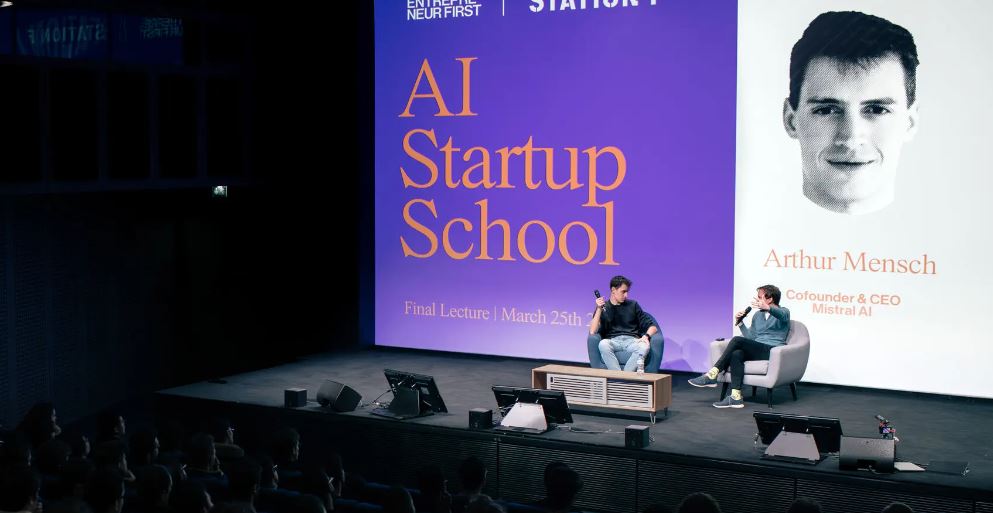Arthur Mensch, a slender figure with tousled hair, made his entrance at a bustling tech hub in Paris last month, clad in jeans and carrying a bicycle helmet. Despite his unassuming appearance, European officials are pinning their hopes on him to spearhead the region’s foray into a high-stakes competition with the United States and China in the realm of artificial intelligence (A.I.).
At just 31 years old, Mr. Mensch is the CEO and co-founder of Mistral, a company widely regarded as one of the most promising contenders to challenge the dominance of OpenAI and Google. With Mistral’s rapid rise to prominence since its founding in Paris a year ago, Mr. Mensch has become a poster child for A.I. in France, drawing praise from investors and policymakers alike.
As Europe rushes to establish a foothold in the A.I. revolution, Mistral has emerged as a beacon of hope, with the French government throwing its weight behind the company to ensure its success. The stakes are high, as policymakers and business leaders fear that Europe’s growth and competitiveness will suffer if it falls behind in the A.I. race, allowing tech giants from other regions to dictate global standards.
Mr. Mensch, formerly an engineer at Google’s DeepMind lab in Paris, along with his co-founders Timothée Lacroix and Guillaume Lample, aims to challenge the dominance of U.S. tech giants in shaping the future of A.I. Recognizing the need for Europe to have its own champion in the A.I. landscape, Mr. Mensch emphasizes the importance of avoiding strategic dependency on foreign tech giants and asserts the need to establish Mistral as a European powerhouse.
While Europe has historically struggled to produce meaningful tech companies, Mistral has emerged as a strong contender, leveraging its generative A.I. technology to develop innovative solutions for businesses. With its flexible and cost-efficient machine-learning tools, Mistral has attracted the attention of major European firms like Renault and BNP Paribas, earning recognition as a promising player in the global A.I. market.
Backed by the French government, Mistral has received accolades from President Emmanuel Macron and enjoys support from key policymakers and ministers. The government’s endorsement underscores the growing importance of A.I. in shaping economic and geopolitical dynamics, as countries vie to strengthen their domestic capabilities in the face of a global technological arms race.
Despite Mistral’s rapid ascent, challenges lie ahead, including competition from large American and Chinese competitors and the daunting task of developing a sustainable business model. While Mistral has secured investments from tech giants like Microsoft and Salesforce, the road to success remains uncertain in a highly competitive landscape.
Mistral’s approach to A.I. software, advocating for open-source models, sets it apart from competitors like OpenAI and Anthropic, which favor closed platforms. Proponents argue that open-source models promote transparency and innovation, enabling broader access to A.I. technology while mitigating potential risks.
As Mistral continues to grow in influence, Mr. Mensch emphasizes the importance of maintaining a light regulatory touch to foster innovation. With Mistral poised to become a major technical power in Europe, the company’s success could have far-reaching implications for the continent’s A.I. landscape and its position in the global tech race.

